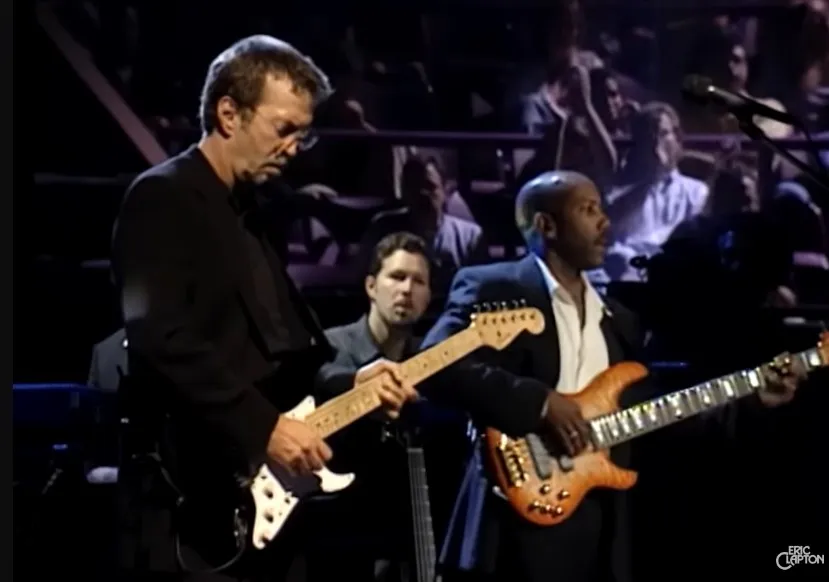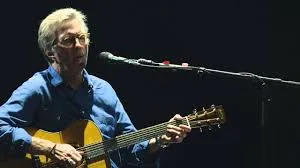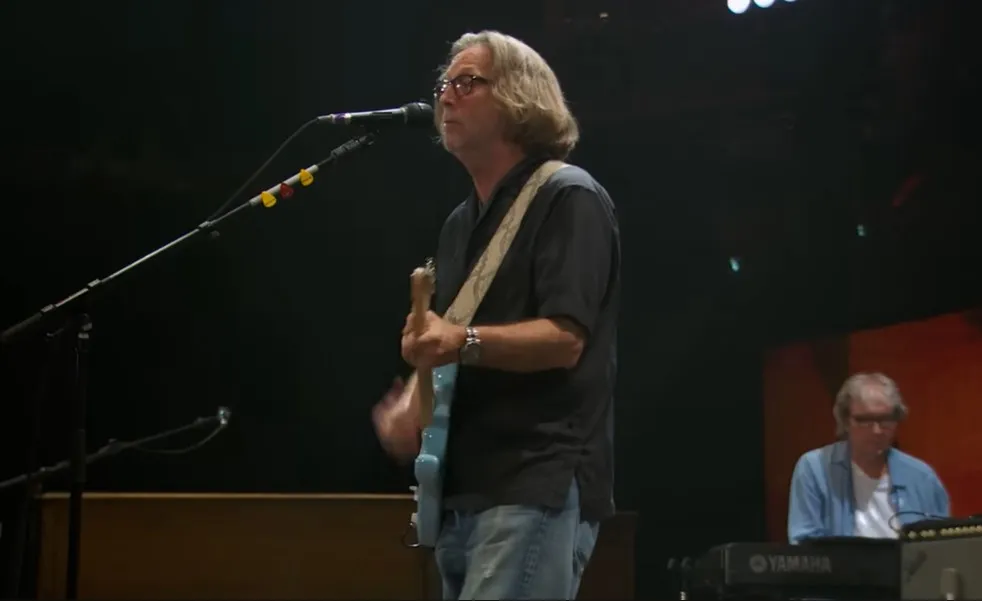About The Song
(Watch the video below)
"Key to the Highway" is a blues standard that holds a significant place in the history of American music and has been notably interpreted by Eric Clapton, among many other artists. This song, with its rich legacy, encapsulates the essence of the blues genre, capturing themes of travel, love, and the perennial quest for freedom.
"Key to the Highway" was originally written and recorded by blues musicians Charles Segar and Big Bill Broonzy in 1940. The song's structure is characteristic of the eight-bar blues, which sets it apart from the more common twelve-bar blues format. This distinct arrangement contributes to its unique rhythmic and melodic flow, making it a memorable and often-covered piece.
The song's lyrics tell the story of a man hitting the open road after a failed relationship. This theme of wandering, which resonates with the experiences of many African Americans in the early 20th century, reflects the broader context of the Great Migration, where millions moved from the rural South to the urban North in search of better opportunities and living conditions. The narrative voice in "Key to the Highway" expresses a mixture of sorrow, resilience, and a relentless desire for self-determination.

Eric Clapton's association with "Key to the Highway" began with his work in Derek and the Dominos, a group formed in 1970. Their rendition of the song appeared on the critically acclaimed album *Layla and Other Assorted Love Songs* released the same year. Clapton's interpretation of the song is notable for its passionate delivery and the seamless interplay between his guitar work and the piano of Bobby Whitlock, another member of the Dominos.
Clapton's version of "Key to the Highway" is a testament to his deep-rooted appreciation of the blues. Influenced by legends such as Robert Johnson, Muddy Waters, and B.B. King, Clapton brings a nuanced understanding of the genre to his performance. His guitar solos in the song are both technically proficient and emotionally charged, embodying the raw, expressive power that defines the blues.
The song in Clapton's hands is extended, often running for over nine minutes in live performances, allowing ample space for improvisation. The structure of the eight-bar blues provides a framework that Clapton and his bandmates use as a canvas for their musical explorations. The repetitive chord progression, typically involving the tonic, subdominant, and dominant chords, creates a hypnotic effect that draws listeners into the narrative.

Clapton's guitar playing on "Key to the Highway" is marked by its fluidity and expressiveness. His use of bends, vibrato, and slides adds a vocal-like quality to his solos, mirroring the plaintive cry of the lyrics. The interplay between Clapton’s guitar and Whitlock’s piano creates a dynamic dialogue, with each musician responding to and building on the other's ideas.
The lyrics of "Key to the Highway" are simple yet profound, capturing a sense of melancholy and defiance. Lines like "I’m gonna leave here runnin’, cause walkin’ is most too slow" convey a sense of urgency and restlessness. The highway serves as a metaphor for freedom and escape, a recurring theme in blues music. The song speaks to the universal human desire to break free from constraints and start anew, a sentiment that resonates across different cultures and eras.
Clapton’s vocal delivery is earnest and heartfelt, imbuing the lyrics with a sense of authenticity. His interpretation remains faithful to the original spirit of the song while bringing his own unique voice to it. This balance of reverence and innovation is a hallmark of Clapton’s approach to the blues.

"Key to the Highway" has been covered by numerous artists, each bringing their own style and interpretation to the song. Besides Clapton, notable versions include those by Little Walter, B.B. King, and The Rolling Stones. The song's enduring popularity is a testament to its universal appeal and the deep emotional resonance it holds.
Eric Clapton’s version, in particular, has played a significant role in introducing the song to new audiences and cementing its place in the pantheon of blues classics. Clapton’s ability to bridge the gap between traditional blues and rock has helped to keep the genre relevant and accessible to successive generations of listeners.
"Key to the Highway" is more than just a blues standard; it is a piece of musical history that encapsulates the spirit of a genre born out of hardship and resilience. Eric Clapton’s rendition of the song highlights his profound connection to the blues and his skill in interpreting and revitalizing classic works. Through his performances, Clapton not only honors the legacy of the blues but also ensures its continued vitality and relevance. In doing so, he invites listeners to experience the emotional depth



